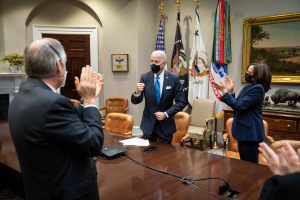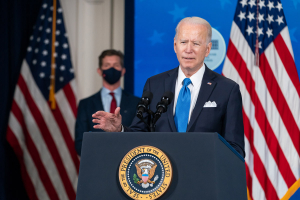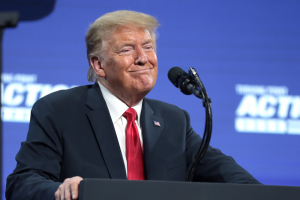Support migrant centric journalism today and donate

By Sanwar Ali:
President Biden's new climate program, part of his administration's commitment to tackle climate change, has potential implications for US immigration policies. The interrelation between environmental policy and U.S. visas is explored in this report.
Climate Change Policy Background
Biden's ambitious climate program, encapsulated in the Inflation Reduction Act, the Infrastructure Investment and Jobs Act, and the CHIPS and Science Act, aims to invest billions in clean energy solutions. This policy shift not only addresses environmental concerns but also creates a substantial number of new jobs, in areas such as solar panel installation and electric vehicle manufacturing.
However, these new opportunities may create a labor shortage, as the existing U.S. workforce may not be equipped to meet the demands of these emerging industries. This leads to a pressing question: How will the climate program affect U.S. immigration policies, particularly work visas, which are crucial for filling these job gaps?
Immigration Implications
The U.S. visa system, may very well be the most complex in the world. This system, particularly work visas like the L1, E2, H1B, and O1 visas, plays a crucial role in bringing skilled workers from abroad to fill job gaps in the U.S.
However, the current visa system may not be equipped to handle the projected influx of foreign workers needed to meet the labor demands of Biden's climate program. Existing visa caps and lengthy wait times for visa processing could pose significant hurdles. For a deeper understanding of the U.S. visa system, please refer to our U.S. Visa Guide.
Economic Impacts
The economic implications of Biden's climate program are wide-ranging. A labor shortage in clean energy jobs could slow down the progress of these projects, creating supply chain constraints and raising the price of goods. On the other hand, an increase in foreign workers brought in through work visas could stimulate the economy, filling job gaps and boosting productivity.
In this context, it is essential to consider how changes in visa policies could influence the U.S. labor market. Perhaps an increase in visa caps, for example, could alleviate the labor shortage? However, it has proved very difficult to pass extensive immigration reform legislation through both houses of congress.
Expert Opinions
Experts in both immigration and environmental policy have weighed in on this issue. According to the White House Report on Climate Migration, strategic tweaks in immigration policies could potentially alleviate labor shortages and ultimately contribute to the success of the climate program. However, it also warns against the risk of exacerbating existing issues in the U.S. immigration system, such as visa backlogs and processing delays.
Conclusion
Environmental policy and U.S. visa implications present both opportunities and challenges. As the Biden administration continues to roll out its climate program, it will be crucial to monitor how changes in immigration policies, particularly work visas, impact the U.S. labor market and economy.
workpermit.com helps with US Work Visa: L1, H1B, E2, and O1 Visas
There are various types of US visas that individuals can apply for, depending on their circumstances. Some of the most common employment-based visas include:
L1 visa: This visa is for intracompany transferees who work in managerial or executive positions or have specialized knowledge.
H1B visa: This visa is for specialty occupations that require theoretical or technical expertise in specialized fields.
E2 visa: This visa is for investors who have made a significant investment in a US business and, management or essential skills employees. Only certain nationalities can apply.
O1 visa: This visa is for individuals with extraordinary abilities in the arts, sciences, education, business, or athletics.
Workpermit.com is a specialist visa services firm with over thirty years of experience dealing with visa applications. For more information and advice, please contact us on 0344 991 9222 or at london@workpermit.com(link sends e-mail)





















